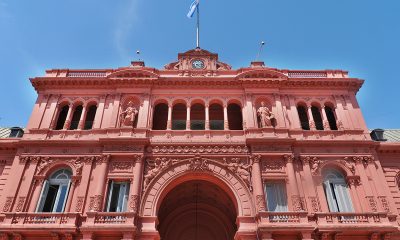South America
Argentine activists raise alarm over far-right primary victory
Javier Milei won Aug. 13 primary, LGBTQ candidates also advanced

The results of Argentina’s primary elections on Aug. 13 have exposed a political landscape that combines significant advances in LGBTQ and intersex rights with the worrying expansion of the far-right in that country. In an election in which only a few openly queer candidates managed to advance to the general elections on Oct. 22, the LGBTQ and intersex community is watching closely the rise of conservative tendencies that could impact their rights.
The results had an unexpected protagonist: Ultra-right wing candidate Javier Milei won the most votes.
With almost 7 million votes — about 30.1 percent of the total cast — the libertarian economist leader of La Libertad Avanza capitalized upon Argentines’ discontent with leftist President Alberto Fernández’s government.
Former Security Minister Patricia Bullrich, who was part of right wing President Mauricio Macri’s government, and her “Together for Change” coalition finished second with 28.3 percent of the votes. Peronism, represented by Finance Minister Sergio Massa and his “Unión por la Patría” ruling coalition, obtained 27.2 percent, which is its worst result since 2011.
Milei’s running mate, Congresswoman Victoria Villarruel, during the campaign spoke against marriage rights for same-sex couples, saying a union between people of the same sex was already “guaranteed with the civil union.” Milei himself also spoke against sexual and gender diversity.
LGBTQ candidates
Reina Ibañez became the first transgender woman presidential candidate in Argentina’s history. She won enough votes to stay in the race.
Ibañez told the Washington Blade she feels like a winner for making history in Argentina.
“It was a triumph to be the first trans candidate for president of Argentina,” said Ibañez. “This marks a historical fact here in the country.”
For her, “the triumph of the ultra-right here in Argentina I attribute it to the fact that more and more people are buying the discourse of the right and in this case the ultra-right won, which in this case would be Milei with his discourse of anti-politics, anti-caste and it worries that this type of characters have won in Argentina.”
“We will be vigilant and attentive so that they do not take away the rights we have won,” she said.
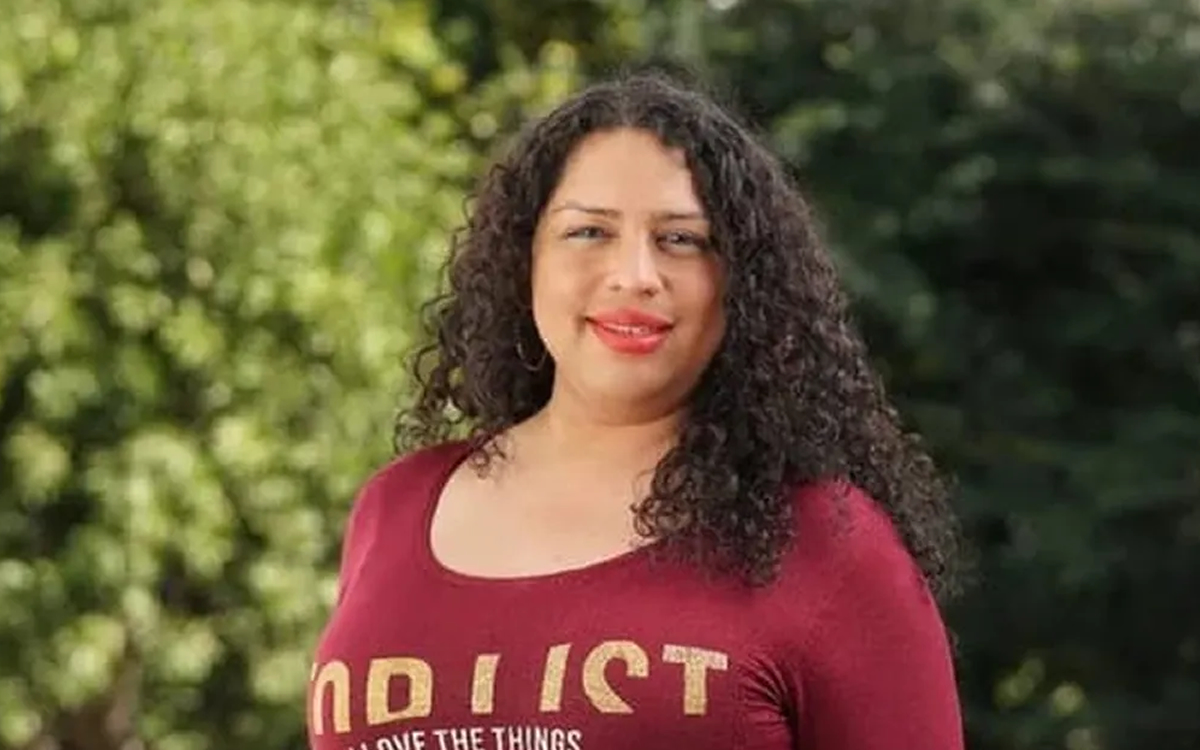
Ibañez added “it is a threat to the LGBT community because Milei said that there is no need for the ministry of gender and women in his campaign. And he is against LGBT people, so if the same result is confirmed in October, it will be a very difficult country for all sectors, not only for the LGBT community.”
Esteban Paulón, a well-known activist, in a historic milestone won enough votes in his race to become a congressman to advance to the general elections.
“We obtained 62,000 votes throughout my province and we need to increase to a little more than double that to manage to fight for the seat on Oct. 22,” Paulón told the Blade.
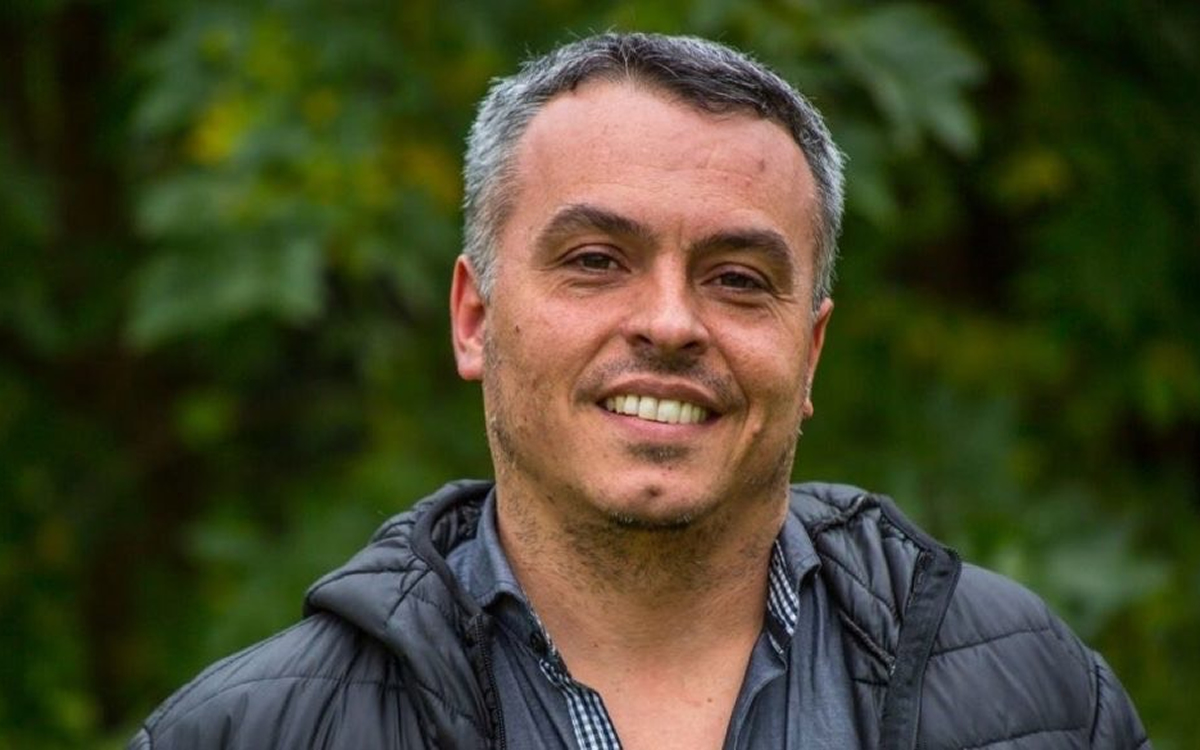
The candidate for the province of Santa Fe in northeastern Argentina explained “we are going to intensify the campaign in the big cities, the tours in the towns and communes of Santa Fe and seek the support of those who, in spite of the national panorama, want to count on a voice that will defend the rights of all in Congress.”
On the other hand, Santiaga D’Ambrosio, a nonbinary candidate of the Popular Left Front, explained to the Blade that they believe “the electoral triumph of the ultra-right in Argentina is an expression, distorted, of punishment vote to the current national government of the Front of All, with a still very fresh memory of what was Mauricio Macri’s government.”
“We must be clear about two things: That the electorate as a whole does not fully and consciously share the program of political-economic subordination to the United States and the cut to basic rights such as health, education and work; and on the other hand, that an electoral victory is not a blank check so that it can implement the whole of its liberal program as we saw in Jujuy winning Morales with a 54 percent of the votes and then having a popular rebellion that was an example of how to face the adjustment,” stressed D’Ambrosio.
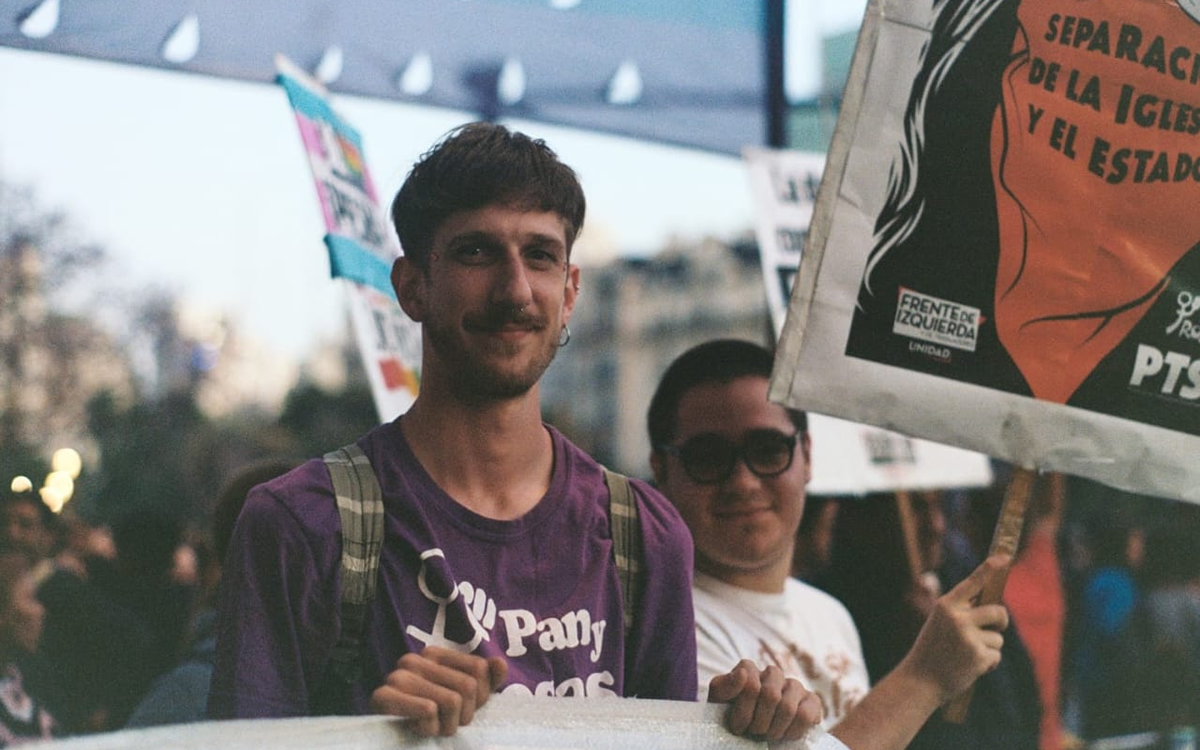
Finally, they indicated that “it must be emphasized that this is not an ideological vote, but one identified with anger towards the political caste and the great economic problems of the country, without ever talking about the role played by businessmen and that caste of which he is a part.”
Far right’s rise a challenge for LGBTQ rights
The primary election has highlighted the rise of far-right tendencies in Argentina, which has raised concerns within the LGBTQ and intersex community. With parties and candidates seeking to curtail LGBTQ and intersex rights and speaking out against sexual diversity, many activists fear the gains they have made in recent years could be at risk.
Among the group that supports Milei there are recognized anti-rights militants, deniers of the dictatorship and climate change, and anti-LGBT+ rights, which they have characterized as privileged,” said Paulón.
The candidate added “in this sense Milei’s electoral rise implies a concrete risk for queer people, both because of the possibility of regression in terms of rights, Milei’s vice presidential candidate has proposed to repeal equal marriage and sanction a different civil union for queer couples. At the same time she is a militant against comprehensive sex education and the alleged gender ideology.”
LGBTQ and intersex activists are in an effort to mobilize voters and raise awareness about the importance of maintaining and strengthening the gains made in equal rights and acceptance of diversity. The general election is shaping up to be an opportunity for Argentine citizens to take a clear position on the political and social direction the country will take in the coming years.
Flavia Massenzio, president of the LGBT+ Federation of Argentina, the most important queer organization in that country, told the Blade that “it is a very worrying result for the right wing in Argentina.”
“The truth is that both the equal marriage law, the gender identity law, as well as many advances that Argentina had, may be at risk with the advances of these candidates if they are actually elected,” lamented Massenzio.
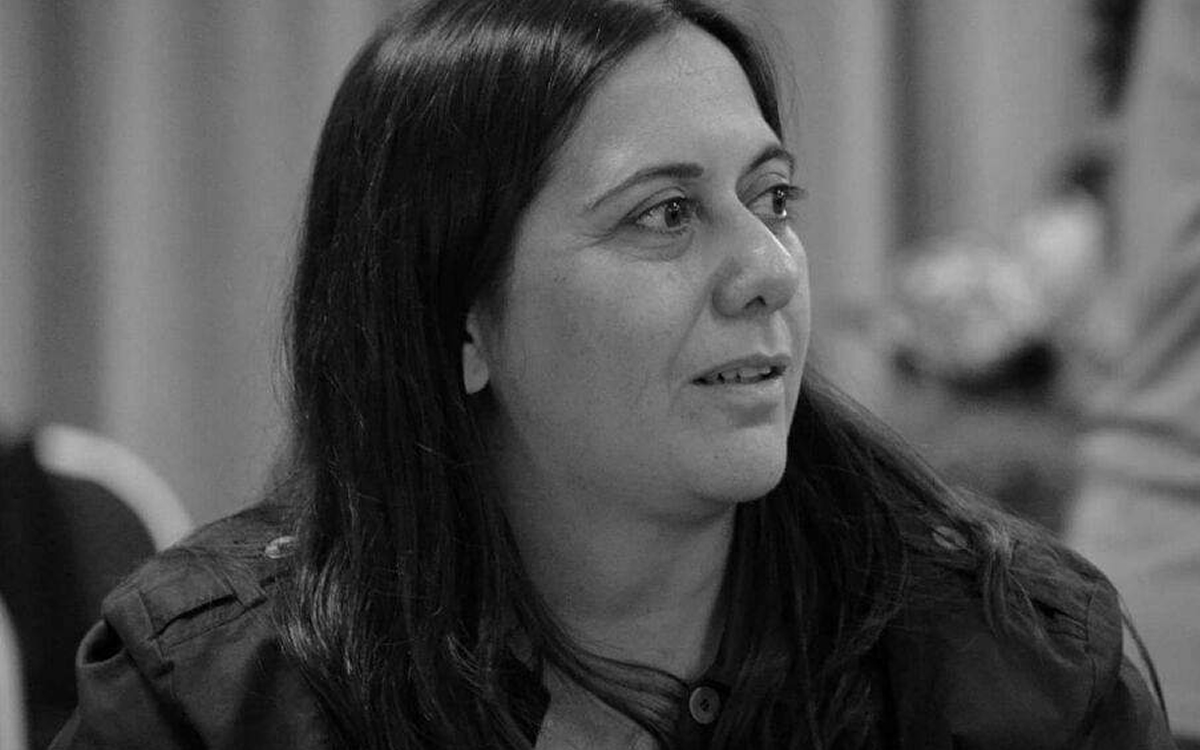
South America
Argentina government dismisses transgender public sector employees
Country’s Trans Labor Quota Law enacted in 2021

Protests have broken out across Argentina in recent weeks after the dismissal of transgender people from their government jobs.
President Javier Milei’s action is in stark contract with the progress seen in 2023, where the government’s hiring of trans people increased by 900 percent within the framework of the Trans Labor Quota Law that had been in place since 2021.
Among those affected is Sofia Diaz, a “survivor” who shared her testimony with the Washington Blade hours after she traveled from Chaco Province to Buenos Aires to protest her dismissal.
Presentes, an LGBTQ news agency, reported the government dismissed more than 85 trans employees in less than two weeks.
Diaz, 49, holds a degree in combined arts. She joined the National Social Security Administration (ANSES) in 2022 under the Trans Labor Inclusion Law. The layoffs began in January and left many people feeling uncertain and anguished. It was her turn a few days ago.
Diaz in an interview recounted how the situation became progressively more complicated, with difficulties in accessing information about her employment status and the eventual confirmation of dismissals through WhatsApp messages. This government action, according to Diaz, violates the law.
“We were on a Friday, I think on March 24, in the office and we have a WhatsApp group of other colleagues from all over Argentina who entered through the trans labor quota and they tell us if we can get our pay stubs on the intranet,” Diaz recalled. “So, I tried to enter, I could not, I talked to two other colleagues and they told me no, they could not, and so we went to another person. He couldn’t either.”
“Some people told us that it could be a system error. Well, we were never calm, let’s say not how this issue of installing fear and the perversion with which they do it ends,” she added. “This sadism of … inflicting pain and speculating with your misfortune and so on … is something that characterizes Javier Milei’s government.”
Diaz recalled a list of those dismissed from the agency began to circulate from the union in the afternoon. A colleague passed it on to her, “and well, unfortunately I was also on that list.”
“At that moment the whole weekend went by with anguish, crying, and talking with other colleagues from other places, not only trans, but everyone, everyone and everyone,” she said. “On Monday when we went to try to enter, we could not enter with the biometric, which is the thumb we had to use every morning to enter.”
Despite the difficult moment through which she is going, the trans activist stressed to the Blade that she will continue protesting and will even sue the government because her dismissal is illegal and “violates the constitution itself.”
The LGBTQ community and its allies have mobilized and organized demonstrations, highlighting the importance of defending the rights won and fighting against discrimination and exclusion. Diaz emphasized the fight is not only for the people affected today, but also for future generations, saying the historical memory of the struggles for inclusion and social justice must be kept alive.
“The Argentine government thus faces a key challenge in human and labor rights, where public pressure and social mobilization can play a determining role in protecting the rights of LGBTQ+ people,” Diaz said.
South America
Daniel Zamudio murderer’s parole request denied
Raúl López Fuentes convicted of murdering gay man in Chilean capital in 2012
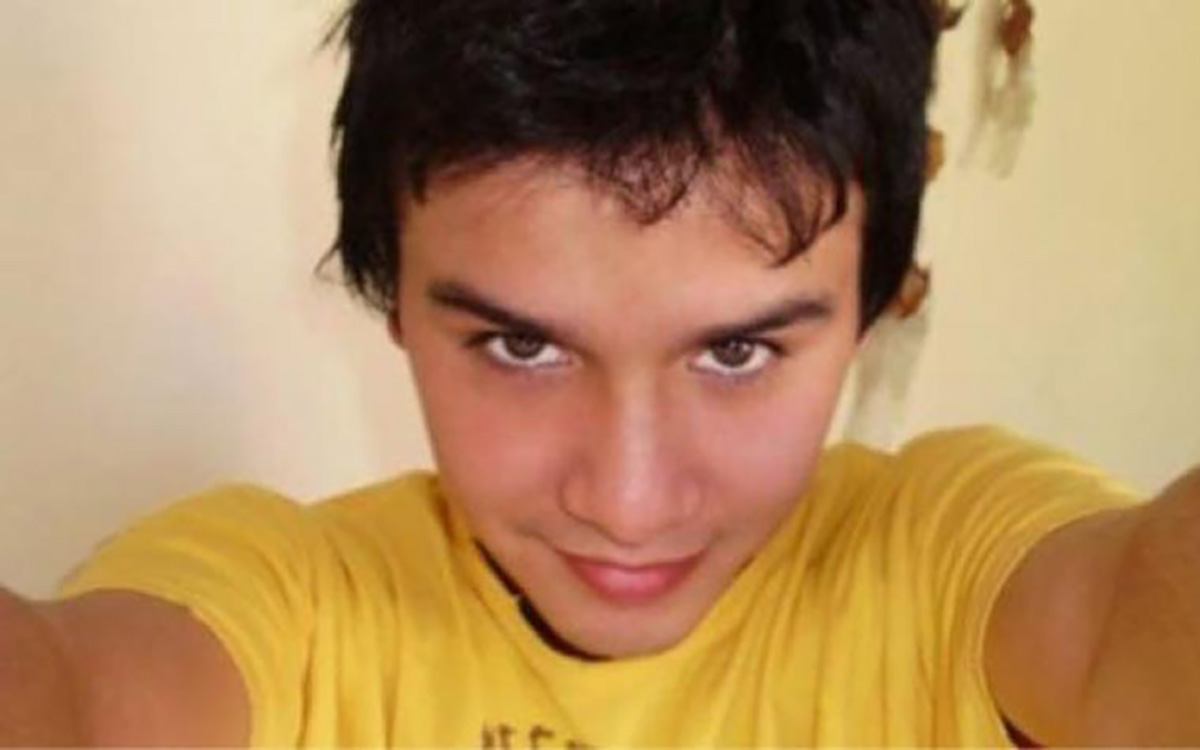
Chile’s Parole Commission on Tuesday rejected a request to allow one of the four men convicted of murdering Daniel Zamudio in 2012 to serve the remainder of his sentence outside of prison.
Raúl López Fuentes earlier this month asked the commission to release him on parole. Zamudio’s family and members of the Movement for Homosexual Integration and Liberation, a Chilean LGBTQ rights group, had gone to court to block the request.
Among the arguments put forward that influenced the commission’s decision is what Movilh categorized as his “high risk of recidivism, linked to the adherence of an antisocial behavior with a tendency to minimize his acts transgressing social norms.”
The commission pointed out that López has psychopathic traits because he is aware of the damage he did to Zamudio and his family.
“In addition, he maintains a high risk of violence, not being advisable to grant the benefit,” the report said.
Zamudio was a young Chilean man who became a symbol of the fight against homophobic violence in his country and around the world after López and three other young men with alleged ties to a neo-Nazi group beat him for several hours in Santiago’s San Borja Park on March 2, 2012. Zamudio succumbed to his injuries a few weeks later.
The attack sparked widespread outage in Chile and prompted a debate over homophobia in the country that highlighted the absence of an anti-discrimination law. Lawmakers in the months after Zamudio’s murder passed a law that bears Zamudio’s name.
López in 2013 received a 15-year prison sentence after he was convicted of killing Zamudio. Patricio Ahumada received a life sentence, while Alejandro Angulo Tapia is serving 15 years in prison. Fabían Mora Mora received a 7-year prison sentence.
Zamudio’s mother, Jacqueline Vera, exclusively told the Washington Blade after the commission rejected López’s request that “we as a family are calmer.”
“Even with my husband we were in a lot of pain at the beginning. It was like a blow of very strong emotions, so we tried to stay calm because we still had to solve the problem,” Vera said. “We had four days to solve it.”
López will have to serve the remaining three years of his sentence before his release.
“I will continue working to improve the Zamudio Law and so that this murderer does not leave prison because he is a danger to society, he does not represent repentance and people like this cannot be free,” she said. “For the same reason, we have to work so that hate crimes have life imprisonment and that is what we will concentrate on.”
South America
Man convicted of killing Daniel Zamudio in Chile seeks parole
Raúl López Fuentes in 2013 sentenced to 15 years in prison

One of the four men convicted of murdering a young gay man in the Chilean capital in 2012 is seeking parole.
Raúl López Fuentes in 2013 received a 15-year prison sentence after he was convicted of killing Daniel Zamudio.
Zamudio was a young Chilean man who became a symbol of the fight against homophobic violence in his country and around the world after López and three other young men with alleged ties to a neo-Nazi group beat him for several hours in Santiago’s San Borja Park on March 2, 2012. Zamudio succumbed to his injuries a few weeks later.
The attack sparked widespread outage in Chile and prompted a debate over homophobia in the country that highlighted the absence of an anti-discrimination law. Lawmakers in the months after Zamudio’s murder passed a law that bears Zamudio’s name.
Patricio Ahumada received a life sentence, while López and Alejandro Angulo Tapia are serving 15 years in prison. Fabían Mora Mora received a 7-year prison sentence.
López has asked the Seventh Santiago Guarantee Court to serve the last three years of his sentence on parole. Zamudio’s family and Jaime Silva, their lawyer who works with the Movement for Homosexual Integration and Liberation, oppose the request.
Movilh represented Zamudio’s family after his murder.
Zamudio’s mother, Jacqueline Vera, during an exclusive interview with the Washington Blade said López’s petition “provoked all the anguish, all the commotion of his time.”
“It was very cruel because in fact two days before we were at Daniel’s grave, where it was 12 years since his death and the beating,” said Vera. “He really does not deserve it.”
“We have gone through very difficult moments,” she added.
The mother, who later created a foundation to eradicate discrimination in Chile, was emphatic in indicating that she and her family “do not accept the release of this guy because he is a danger to society and a danger to ourselves.”
“At the last hearing where they were sentenced, they told us that we are going to remember them when they get out,” said Vera. “They threatened us with death. There is a video circulating on social networks where they were in front of me and they laughed and made fun of me. They told me that I remembered that I had three more children.”
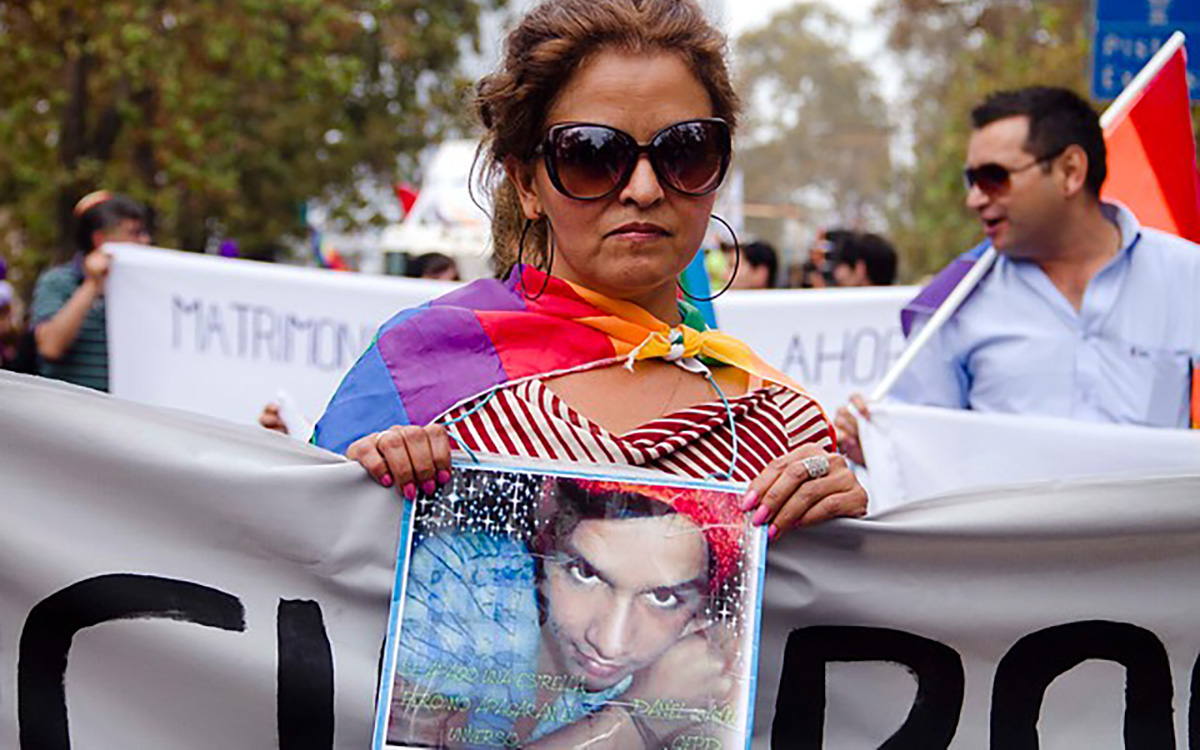
Regarding the possibility that the Chilean justice system will allow López to serve the remaining three years of his sentence on parole, Vera said “with the benefits here in Chile, which is like a revolving door where murderers come and go, it can happen.”
“In any case, I don’t pretend, I don’t accept and I don’t want (López) to get out, I don’t want (López) to get out there,” she said. “We are fighting for him not to get out there because I don’t want him to get out there. And for me it is not like that, they have to serve the sentence as it stands.”
LGBTQ Chileans have secured additional rights since the Zamudio Law took effect. These include marriage equality and protections for transgender people. Advocacy groups, however, maintain lawmakers should improve the Zamudio Law.
“We are advocating for it to be a firmer law, with more strength and more condemnation,” said Vera.
When asked by the Washington Blade about what she would like to see improved, she indicated “the law should be for all these criminals with life imprisonment.”
-

 State Department4 days ago
State Department4 days agoState Department releases annual human rights report
-

 South America2 days ago
South America2 days agoArgentina government dismisses transgender public sector employees
-

 District of Columbia2 days ago
District of Columbia2 days agoCatching up with the asexuals and aromantics of D.C.
-

 Politics4 days ago
Politics4 days agoSmithsonian staff concerned about future of LGBTQ programming amid GOP scrutiny

